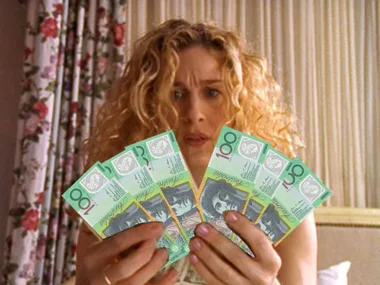It seems Superannuation is always in the news, ultimately because the Australian Government is constantly making changes to it in order to future-proof our country’s economy. Come July 1, 2017 more superannuation changes are set to come into force, which may affect you. Although super is confusing at the best of times, it pays to be across how these tweaks will ultimately affect your retirement nest egg.
However, don’t get disheartened when these changes do have an impact on the growth of your superannuation fund as super is still one of the best investments you’ll ever make, right up there with your property. Financial guru and TV presenter Paul Clitheroe explains exactly why superannuation is still the best tax break you’ll come across, and why you should continue taking advantage of it by making extra contributions into your fund.
Paul Clitheroe on why superannuation is still a solid retirement savings plan…
Superannuation allows most working people and retirees the opportunity to reduce or eliminate tax. Its sheer size also provides some very competitive fee structures. It’s is an amazingly powerful wealth creation and preservation weapon for many millions of Australians.
Once we earn more than $37,000 we pay tax, including the Medicare levy, at a rate of 34.5 per cent. Above $80,000 it becomes 39 per cent and anyone fortunate enough to earn more than $180,000 pays 49 per cent on income above that.
So is super taxed?. Yes, but often at much lower rate than your income tax. For anyone earning less than $300,000, your money can go into super from your pay at a tax rate of 15 per cent. How good is that?! Even if you’re earning above $300,000, the tax rate on money going into super is only 30 per cent. That may sound like a lot but don’t forget a super high earner is paying 49 per cent income tax including the Medicare levy, so a 30 per cent rate on “salary sacrifice” money going into super still reduces tax by 19 per cent, which is a huge saving.

Let’s take someone earning $100,000. If they were to salary sacrifice $15,000 into super, after the 15 per cent tax they would have $12,750 invested in super, and then pay only 15 per cent tax on any earnings made once invested in the fund. Compare that with having normal tax taken out and ending up with $9150. Crikey, it’s hardly a comparison: $12,750 invested in the low-tax environment of super is a heap better than taking home $9150.
Sure, there are always exceptions. You may need that money for school fees, a car, a holiday or everyday living expenses. In that case, super is not much use to you. You may be a lot richer but we have to pay our bills and eat.
Super is not perfect. I do appreciate my enthusiasm for super is not universal and that’s fair enough. Apart from the government meddling with the rules, it’s ridiculously complex and, in particular for younger Australians, the promised super payout is decades away. But despite the debate about changes to super – and, I have no doubt, there are more changes to come – super remains a legal tax miracle for most of us.


